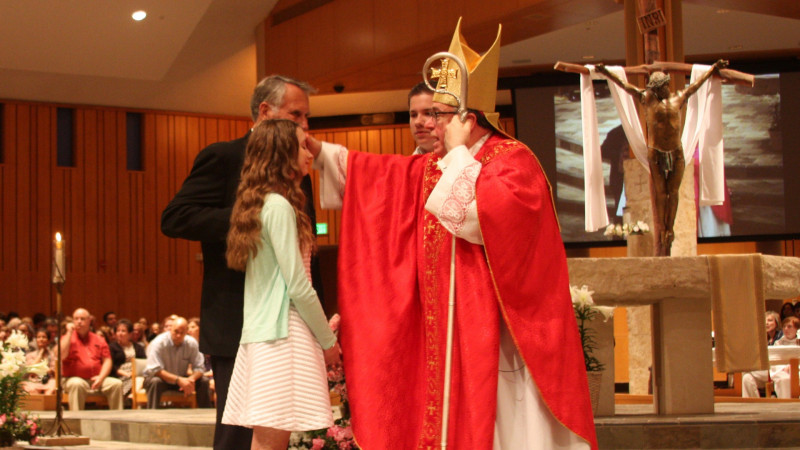How to Help Your Child Navigate Major Milestones
As our children grow, it’s our job as parents to monitor their development to ensure that they are meeting all of those developmental milestones within a certain time frame. But what about those milestones that aren’t essential skills like learning to walk or read, or the natural events like puberty or learning to control their emotions?
By instilling a growth mindset in our children, we help to change their point of view from “I can’t do it” to “I can’t do it yet.” By standing by them through all of life’s big events and all of your child’s accomplishments, they will know that they can depend on you for guidance and support when it comes to tackling the big stuff later in life.
How your child works their way through major milestones depends in large part on their personality, but there are ways that you can make difficult transitions a little easier and make their important accomplishments stand out for them.
Braces Can Be a Doozy

If you didn’t need braces as an adolescent, consider yourself lucky. For most, getting a perfect smile comes with a mouth full of brackets and wires and constant adjustment—and a lifetime of wearing a retainer to keep that beautiful smile you so painfully earned. Most kids get braces in middle or high school, which is a time in their life when they are already going through so many physical and emotional changes. How long braces take depends on your child’s treatment plan, as well as how crooked, crowded, or gapped their teeth are. More severe cases might take a little longer, but most patients wear braces for 18 to 24 months.
Luckily, our children have so many more types of braces to choose from nowadays. Aside from traditional metal braces, many orthodontists offer ceramic braces, which are less visible than metal braces, or aligners like Invisalign that can be removed for eating or rigorous physical activity. Even if you haven’t had braces yourself, there are still ways that you can make the pain and the food restrictions easier to deal with regardless of their length of treatment.
Ensuring that your child practices proper oral hygiene and follows their orthodontist’s instructions will make treatment run smoothly and create good habits for later in life. If your child has a particularly difficult adjustment or is feeling down about how braces make them look that day, take them out for ice cream or another cold treat for some relief and some time together. Find alternatives to their favorite foods if they have traditional or ceramic braces that can’t be removed at mealtimes, and create a care package full of hard foods, gum, and gummy candy to give them on the day they get their braces off and reveal that straight smile. Mark the beginning and the end of their orthodontic treatment with a celebration, even if it’s something small, so they know you’ve put thought into their journey.
Celebrate Their Confirmation

Like First Communion, Confirmation is an important sacrament along the path of the Catholic faith, and not only for our children. For teenagers taking that next step in their faith, it gives them the opportunity to explore their religion and what it means to them in a more adult and mature way. It’s a commitment to live and learn the Catholic faith. For parents, Confirmation is an accomplishment of raising a child within the faith. It gives you a chance to talk to your child about their future from a faith-based perspective instead of just discussing school or relationships.
So celebrate your child’s confirmation. Shop around for confirmation gifts that will help them grow in their faith, and consider getting your child’s sponsor a gift as well. Some great gift ideas include a custom rosary, an engraved keepsake, a personalized Bible, or a piece of jewelry or wristwatch that will remind them of this important milestone whenever they look at it. You know your child’s tastes and needs, and the perfect confirmation gift should be something that suits them. Aside from a gift, you could choose to celebrate with a family get-together. Your church might hold a luncheon or fellowship potluck after the ceremony for all of the Confirmandi, but inviting guests over to your home or out to a park makes the event more personal because it is a celebration just for your child. This will give your relatives a chance to celebrate your child and this milestone, and shows your child that they aren’t alone on their journey through faith.
Academic Success Is Personal Success

How well your child performs in school has a huge impact on their self-esteem. Whether you’ve got a brainiac who is sailing through math and brings home another report card packed with straight A’s, or your child has to work a little harder to bring home good news and good grades, it’s important that you celebrate your child’s success every step of the way.
Academic success sets a strong foundation for the rest of your child’s life, and celebrating these accomplishments will encourage them to continue to do better in all aspects of their future. Your child’s individual needs might vary depending on their abilities, but one thing will always remain the same—they’ll feel good about doing well when you celebrate with them. This doesn’t mean you have to give them a medal every time they bring home a good grade. Acknowledge and reward their accomplishments, but don’t punish them for doing poorly in school. If your child struggles in school, get them some help with a tutor or extra worksheets and celebrate with them with things finally begin to click.
Saint John Vianney High School, a private Catholic school in Holmdel, NJ, posts their academic and citizenship award winners on their school’s website and encourages teachers and community members to celebrate these students and praise them for their hard work. Other schools make announcements over the loudspeaker to the whole school to congratulate student success. School staff has it covered at school, so make sure you’re celebrating at home too.
They Can Do It

While many people believe that our intelligence is what helps us accomplish things, this isn’t entirely true. In most cases, our attitude is more important than our intelligence. This is why it is important to instill a growth mindset in our children from a young age. There are two care mindsets that determine the way we approach obstacles and tasks in like: fixed and growth. With a fixed mindset, we set ourselves up for failure before we even begin. We limit ourselves by what we already know, rather than give ourselves the freedom to learn by looking at what we can learn.
If your child runs into an obstacle, whether it’s keeping up in school, or learning a new skill, or dealing with emotions, it’s likely that you’ll hear them utter the words “I can’t.” Maybe they don’t think they can learn to ride a bike. Maybe they’re auditioning for first chair flute and haven’t mastered their solo piece. Maybe algebra is giving them a run for their money. Whatever it is, when they throw out the “I can’t” — tack on a “yet.” They can’t do those things yet, but that doesn’t mean they’ll never get it down. They just need to look at the problem with a different mindset and try again.
The younger we encourage a growth mindset within our kids, the easier it will be for our children to train their brains to look at their trials and struggles with the knowledge that, even if they’re not quite there yet, they’ll get there with time. Each milestone they reach, no matter how big or small, is an accomplishment in and of itself. These milestones show growth and progress in your child, but also success in teaching your child to work for the things they want or need to learn.
They can do it, and so can you!
